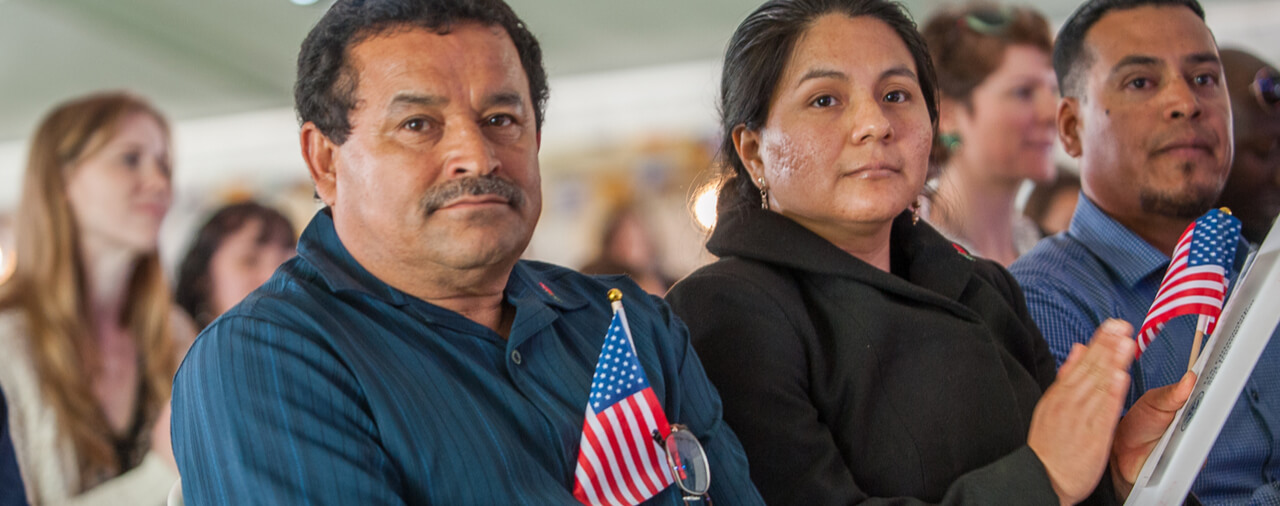New Citizenship Clause Case Involving American Samoa
On March 27, 2018, the Associated Press published an interesting report on a new lawsuit involving birthright citizenship.1
A group of plaintiffs led by John Fitisemanu, an American Samoan noncitizen national of the United States residing in Utah, filed suit in the United States District Court for the District of Utah arguing that American Samoans living in Utah derived citizenship at birth through the citizenship clause of the Fourteenth Amendment of the United States Constitution [see article]. The AP reported that Sam Erman, a law professor from the University of Southern California who plans to file suit in support of the plaintiffs, is taking the position that a victory for the plaintiffs would call into question whether individuals who lived in the Philippines when it was a U.S. territory prior to 1946 would be eligible to seek citizenship. Individuals in the Philippines were noncitizen nationals of the United States prior to the Philippines' gaining of independence in 1946.
However, as the article notes, a similar suit failed in 2015. In Tuaua v. U.S., 788 F.3d 300 (D.C. Cir. 2015) [PDF version], the United States District Court for the District of Columbia Circuit, relying on Supreme Court of the United States precedent from the “Insular Cases,” held that the Citizenship Clause does not guarantee birthright citizenship to individuals born in American Samoa. The Supreme Court subsequently declined to hear the case on appeal, denying certiorari in Tuaua v. U.S., 136 S.Ct. 2461 (2016) [PDF version].
Nearly all noncitizen nationals today are those individuals who were born in American Samoa, although in certain cases, an individual born in American Samoa but with one or two U.S. citizen parents may derive citizenship at birth instead of nationality without citizenship [see article]. There is no way for a foreign national to obtain U.S. nationality without U.S. citizenship under current laws, meaning that the only way in which one may acquire noncitizen nationality is through birth. On site, we have a detailed overview of noncitizen nationality and how it is distinguishable from both U.S. citizenship and those who are neither citizens nor nationals of the United States [see article]. Please also see our article on immigration issues involving noncitizen nationals, with an emphasis on the rules for naturalization [see article]. Regarding the Citizenship Clause, we have a full article on how the Clause operates and who is a U.S. citizen based on birth in the United States [see article].
Before concluding, it is worth noting that the AP article contains one important error regarding the status of noncitizen nationals. Namely, the article incorrectly states that noncitizen nationals “cannot … sponsor family members for immigration to the U.S….” To learn more, please see our full article on relevant Board of Immigration Appeals (BIA) precedent on petitioning for noncitizen nationals [see article]. Furthermore, it is worth noting that in most cases, noncitizen nationals are not subject to employment restrictions, owing to the fact that they are not considered to be aliens covered by the Immigration and Nationality Act. In fact, a foreign national can face serious immigration charges for falsely representing him or herself as a noncitizen national for employment verification purposes [see section].
A noncitizen national with questions about employment eligibility, petitioning for relatives or naturalization may consult with an experienced immigration attorney for case-specific guidance.
We will follow the litigation in this case and any similar cases that may arise as it develops. Regardless of the result, the issues present interesting questions about the citizenship and nationality laws of the United States.
_____________________

- Melsida Asatrian's blog
- Log in to post comments
